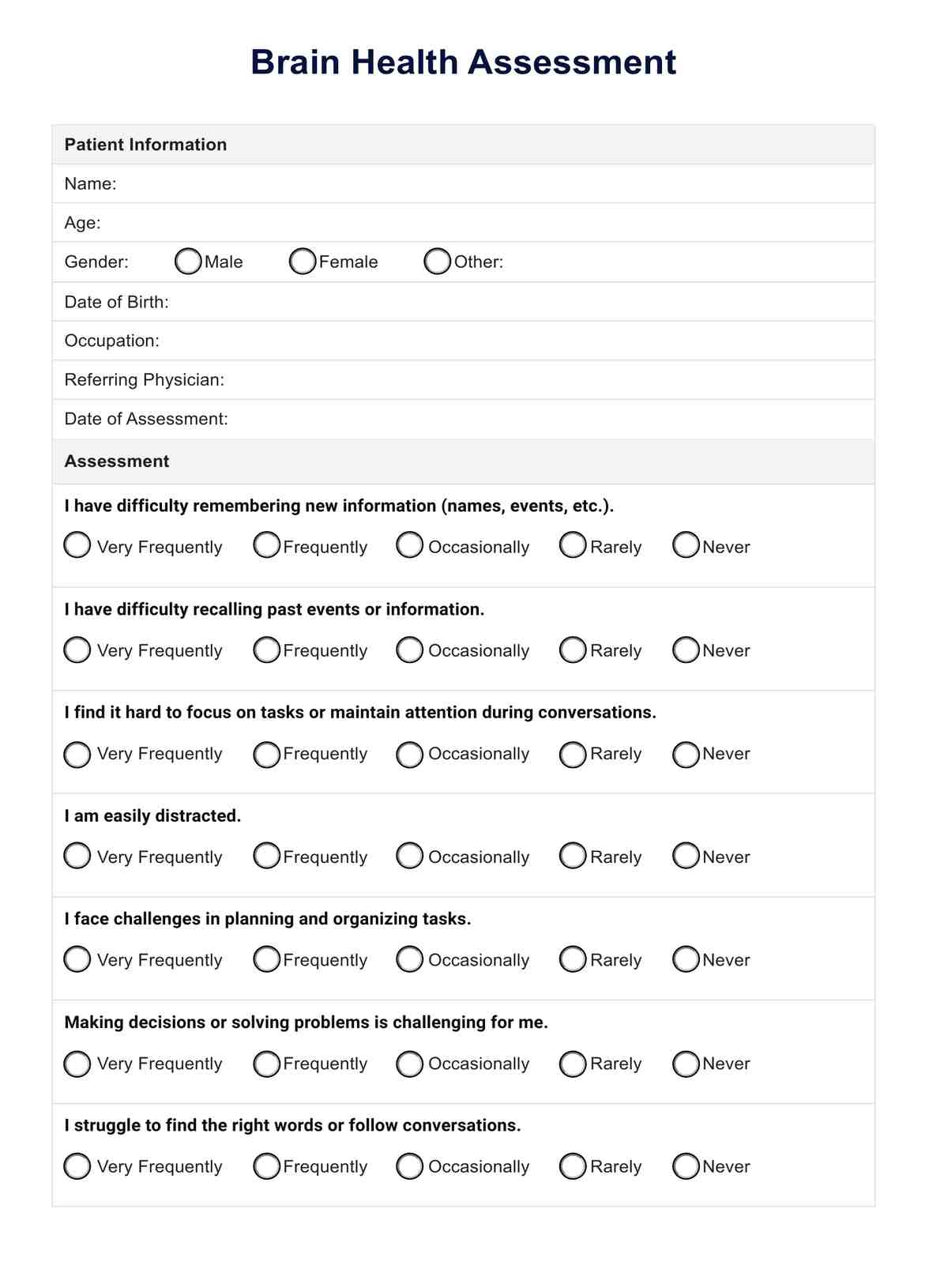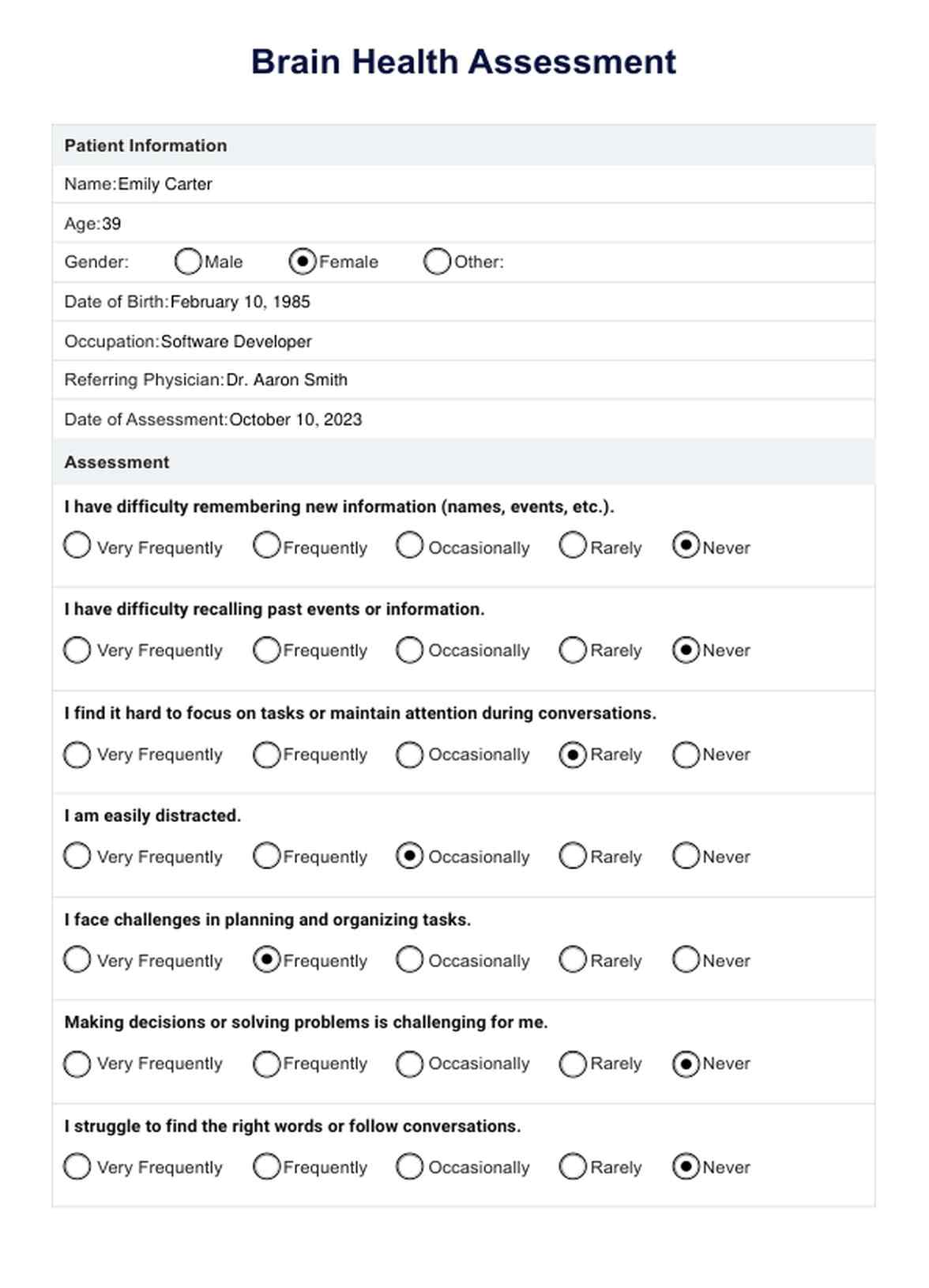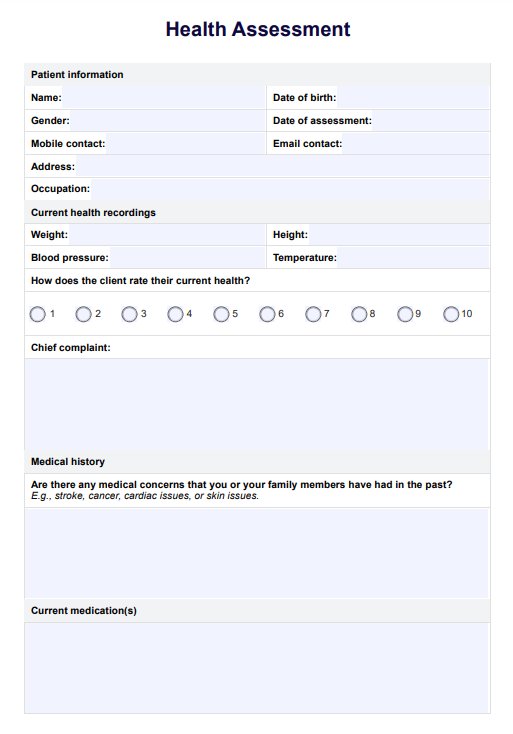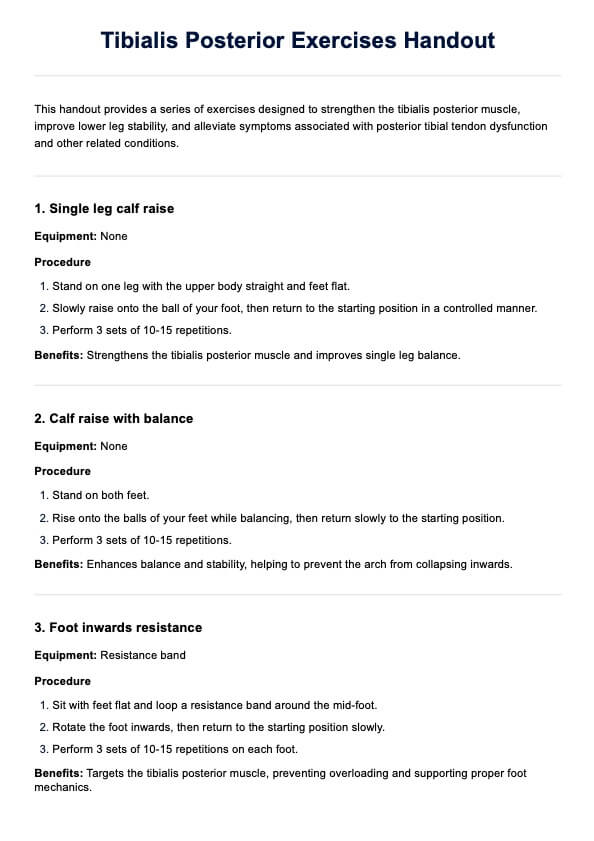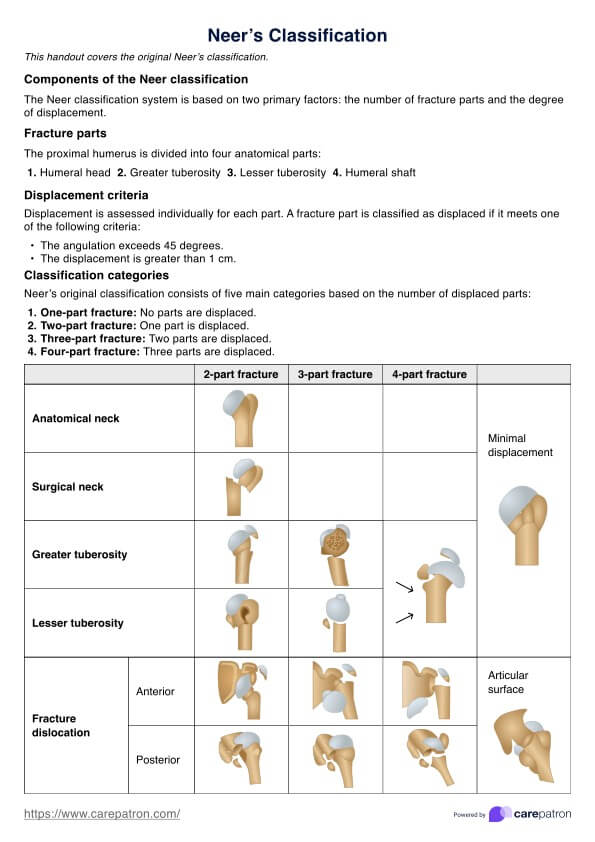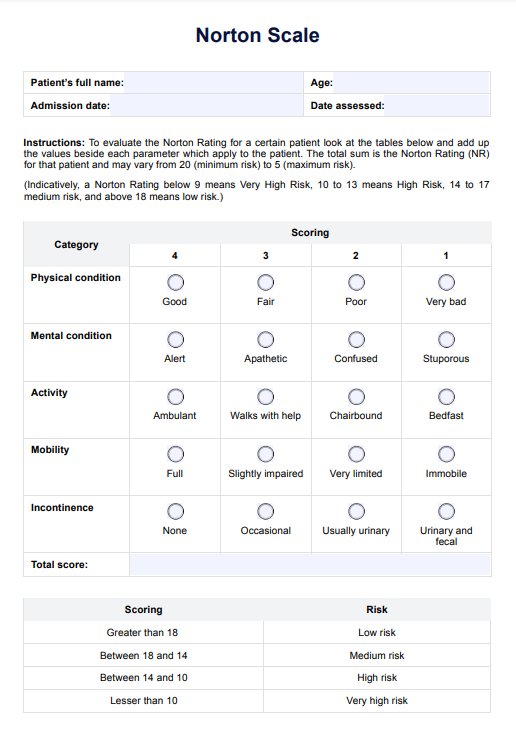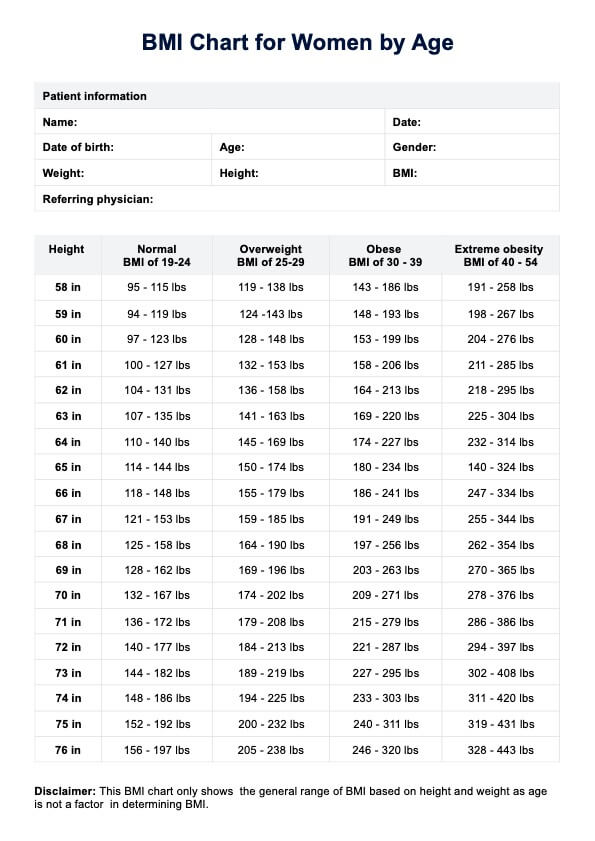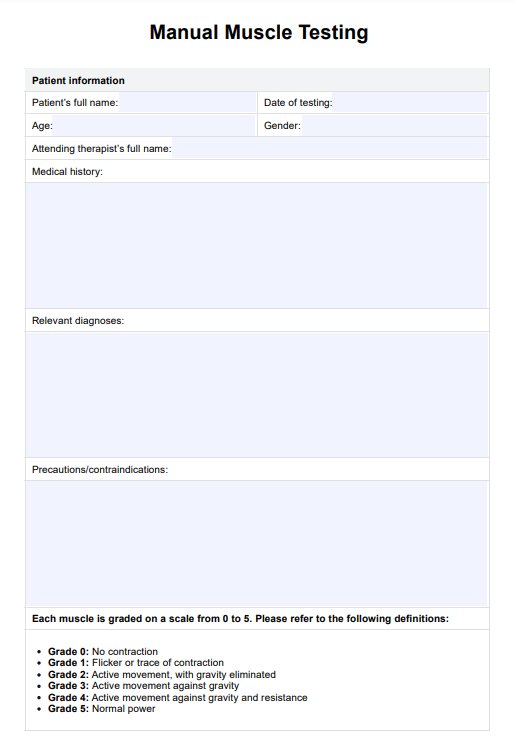Brain Health Assessment
Explore the benefits of a brain health assessment. Learn more about cognitive insights, improve mental function, and safeguard against age-related mental decline.


What is brain health?
Brain health encompasses optimal functioning in cognitive, emotional, and neurological aspects. It involves the brain's capacity for critical tasks like thinking, learning, and retaining memories, as well as more complex abilities such as decision-making, problem-solving, and creativity—all of which contribute to maintaining emotional balance and mental wellness in a confusing world.
Consider exploring detailed brain diagrams to better understand the brain's anatomy and functions.
Brain Health Assessment Template
Brain Health Assessment Example
What is the importance of having a healthy brain?
Healthy brains are crucial for maintaining quality of life and independence, enhancing cognitive abilities like memory and decision-making, and supporting emotional regulation. It plays a significant role in learning, reasoning, social interactions, and overall physical health, contributing to personal and professional productivity.
Prioritizing brain health is essential for a fulfilling life and in preventing neurodegenerative diseases such as Alzheimer's and Parkinson's, effectively addressing any mental health concern.
What is a Brain Health Assessment?
A brain health assessment comprehensively evaluates cognitive functions, including memory, attention, language skills, and problem-solving abilities. Conducted through online assessment tools or in-person by a mental health professional, these assessments also gauge emotional and psychological well-being, which is vital for healthy brain maintenance.
This process helps establish a cognitive baseline, discover early signs of decline, and assess various health impacts. The insights gained guide healthcare interventions and treatments, enhancing cognitive health and managing conditions like dementia and Alzheimer's, supporting long-term mental wellness, and understanding different brain types.
How to use this template
Step 1: Gather patient information
Begin by having the patient provide general information, including name, age, gender, height, weight, primary mental health concern, and current medications. This information lays the foundation for a thorough brain health assessment.
Step 2: Conduct a Brain Health Assessment
This assessment encompasses many lifestyle factors and behaviors that influence brain health. By incorporating these elements, the assessment offers a holistic view of the individual's cognitive and emotional well-being.
By adhering to these steps, healthcare providers and patients can collaboratively utilize this template to enhance brain health. The emphasis on adopting behaviors that support cognitive and emotional well-being—such as regular physical exercise, social engagement, and quality sleep—is critical to a comprehensive approach to improving brain function.
5 Tips on keeping the brain healthy
1. Exercise regularly
Exercise has many known benefits, especially in enhancing cognitive functions and emotional well-being—crucial for brain health. It also helps improve focus, problem-solving, and memory retention.
Additionally, physical activity is a natural mood elevator due to the increased production of endorphins and neurotransmitters essential for managing mental health concerns. Making exercise a consistent part of your lifestyle can lead to long-term benefits for your cognitive abilities and emotional health, underscoring its importance for a healthy brain.
2. Get plenty of sleep
Sleep plays a crucial role in maintaining brain health by repairing, strengthening, and optimizing neural functions. Adequate sleep enhances memory retention and clarity of thought, essential for overall well-being.
Furthermore, consistently achieving seven to eight hours of uninterrupted sleep each night is vital for effectively consolidating and storing memories, significantly contributing to maintaining mental health.
3. Eat a balanced, healthy diet
Your diet plays a massive role in keeping your brain healthy. A balanced diet provides the nutrients needed for optimal brain health. Foods like vegetables, nuts, fruits, and fish contain vitamins and good fats that protect the brain, essential for maintaining mental health.
Studies also show that foods rich in omega fatty acids, like extra-virgin olive oil, are vital for cell function, contributing to mental health and reducing the risk of cognitive decline.
4. Stay mentally active
Stimulating the brain through engaging activities is crucial for its health, much like physical exercise is for the body's optimal physical well-being. Activities such as solving brain teasers, reading, learning new skills, or playing strategic games enhance cognitive abilities like memory and problem-solving skills, which are essential for sustaining brain health.
5. Maintain social connections
Interacting with others plays a crucial role in sustaining mental health. Studies show that connections with family, friends, and community members offer profound mental benefits. By being socially active, you actively help yourself ward off loneliness and depression while providing mental stimulation through varied interactions and shared experiences.
Consistent social engagement is also associated with decreased risks of dementia and cognitive decline. Cultivate your relationships and partake in communal activities, from clubs to volunteering or simply enjoying the company of loved ones. Staying connected enriches your mental engagement and uplifts your mood, contributing significantly to a sound and vigorous mind.
Commonly asked questions
Yes, a brain health assessment is a credible and valuable tool, often used by healthcare professionals, including double board-certified psychiatrists and experts at institutions like Amen Clinics. These tests evaluate cognition, overall neurological well-being, and the patient's health.
To evaluate your mental health, you might consider undergoing a brain health assessment. These assessments can be done through online platforms or by consulting with a healthcare provider, who may use a combination of cognitive tests, functional assessments, and sometimes neuroimaging to understand your mental health and brain type.
Signs of a healthy brain include good memory retention, clear and focused thinking, the ability to learn and adapt to new information, emotional stability, and practical problem-solving skills. Regularly engaging in mentally stimulating activities, maintaining a balanced diet, ensuring adequate sleep, participating in physical exercise, and fostering social connections all contribute to peak brain function.
For more insights into the psychological aspects of brain function, explore our Brain Diagram for Psychology.


